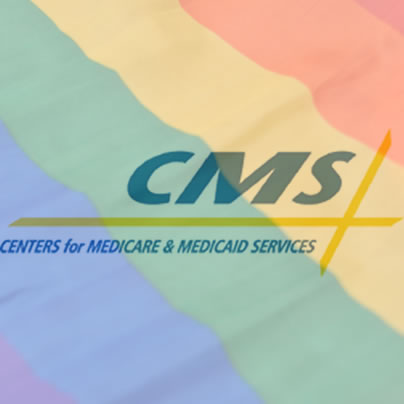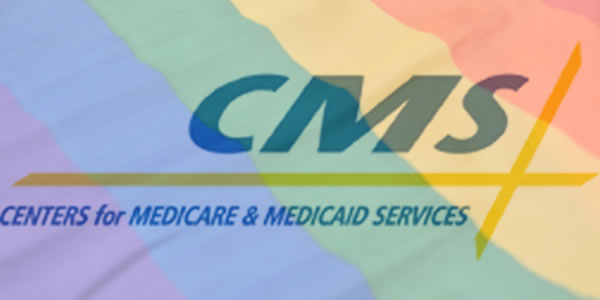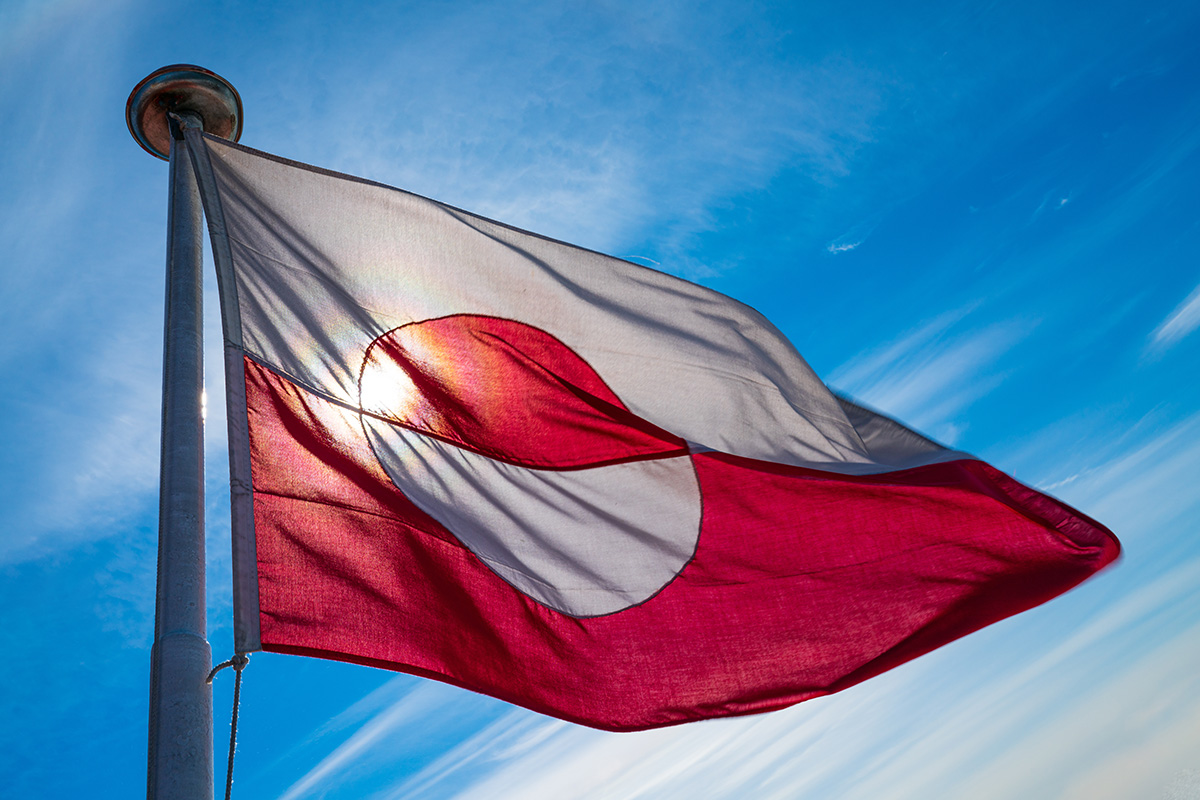News
Obama admin says insurers can’t discriminate against gay unions
Prohibits discrimination even in non-marriage equality states


The Centers for Medicare & Medicaid has issued guidance clarifying insurers can’t discriminate against same-sex couples. (Image public domain)
The Obama administration clarified on Friday that insurers are prohibited from discriminating against same-sex marriages for the purposes of non-grandfathered family coverage — even if applicants are applying in non-marriage equality states.
In guidance dated March 14, the Centers for Medicare & Medicaid says existing provisions in the health care reform law prohibiting discrimination by insurers on the basis of gender — which the Obama administration has interpreted to extend non-discrimination protections based on sexual orientation and gender identity — also requires insurers not to refuse family coverage for married same-sex couples.
The guidance is set up as Q&A. The question is “If a health insurance issuer in the group or individual market offers coverage of an opposite-sex spouse, may the issuer refuse to offer coverage of a same-sex spouse?” The response starts off simply, “No.”
“This section prohibits an issuer from choosing to decline to offer to a plan sponsor (or individual in the individual market) the option to cover same-sex spouses under the coverage on the same terms and conditions as opposite sex-spouses,” the guidance states.
Alicia Hartinger, a CMS spokesperson, said the guidance spells out that non-discrimination is the rule for insurers — both on and off the health insurance exchanges — when selling policies.
“CMS recognizes the importance of all Americans and their families having access to quality, affordable coverage,” Hartinger said. “Today’s guidance clarifies that issuers may not choose to treat same-sex spouses differently from opposite-sex spouses. If an issuer offers opposite-sex spouse coverage, it may not choose to deny the same coverage to a same-sex spouse. We will continue to work with states and issuers to help ensure all Americans have an equal opportunity to purchase the new coverage options available to them.”
The guidance says insurers cannot refuse family coverage to married same-sex couples even if they live in — or the insurance is sold in — a non-marriage equality state that doesn’t recognize those unions.
Additionally, the guidance acknowledges insurers may not have realized this prohibition when designing their policies for the 2014 coverage year. Accordingly, while encouraging immediate compliance, CMS says insurers need not begin adhering to this policy until Jan. 1, 2015. The guidance also directs states to begin enforcing the regulations no later than Jan. 1, 2015.
The guidance doesn’t address whether it requires CMS to provide coverage to same-sex couples in domestic partnerships or civil unions. A CMS official said the guidance applies only to marriages, not these other unions.
LGBT advocates praised the new guidance as a step toward ensuring that married same-sex couples have the same access to health insurance as their opposite-sex counterparts.
Rea Carey, executive director of the National Gay & Lesbian Task Force, earlier said her group wanted the Obama administration to make the clarification and upon news of the guidance said it would help same-sex couples “hurting right now” because they were denied health insurance.
“Today’s important HHS announcement will help remove this type of discrimination by requiring the health insurance industry to treat us the same as straight married couples — even if the states where we live do not recognize marriage equality,” Carey said. “While insurers are not required to be in compliance with the new rules until January 2015, we urge the industry to act now — as affordable health care delayed is affordable health care denied.”
There have been reported incidents of married gay couples being unable to receive family coverage in the aftermath of the implementation of the Affordable Care Act. In February, a gay couple — Alfred Cowger and Anthony Wesley of Gates Mills, Ohio — filed a federal lawsuit charging that they were unable to obtain family coverage because their state doesn’t recognize their marriage.
In January, Blue Cross and Blue Shield canceled family insurance policies it sold to same-sex couples under the Affordable Care Act in North Carolina. Following news reports about the cancellations, the insurer changed course and agreed to offer family coverage on the health insurance exchange to same-sex couples.
Kellan Baker, director of the LGBT State Exchanges Project for the Center for American Progress, said the new guidance is important because research shows LGBT families have trouble accessing health insurance.
“Research has shown that same-sex couples, as well as transgender people and other members of the lesbian, gay, bisexual, and transgender, or LGBT, communities, frequently face obstacles to affordable, comprehensive insurance coverage,” Baker said. “My colleagues and I look forward to working with HHS to ensure that this guidance is fully implemented in a timely manner and that similar action is taken to remove other barriers to coverage, such as discriminatory insurance exclusions that target transgender people.”
The White House
Trump-Vance administration ‘has dismantled’ US foreign policy infrastructure
Current White House took office on Jan. 20, 2025

Jessica Stern, the former special U.S. envoy for the promotion of LGBTQ and intersex rights, on the eve of the first anniversary of the Trump-Vance administration said its foreign policy has “hurt people” around the world.
“The changes that they are making will take a long time to overturn and recover from,” she said on Jan. 14 during a virtual press conference the Alliance for Diplomacy and Justice, a group she co-founded, co-organized.
Amnesty International USA National Director of Government Relations and Advocacy Amanda Klasing, Human Rights Watch Deputy Washington Director Nicole Widdersheim, Human Rights First President Uzra Zeya, PEN America’s Jonathan Friedman, and Center for Reproductive Rights Senior Federal Policy Council Liz McCaman Taylor also participated in the press conference.
The Trump-Vance administration took office on Jan. 20, 2025.
The White House proceeded to dismantle the U.S. Agency for International Development, which funded LGBTQ and intersex rights organizations around the world.

Secretary of State Marco Rubio last March announced the State Department would administer the 17 percent of USAID contracts that had not been cancelled. Rubio issued a waiver that allowed PEPFAR and other “life-saving humanitarian assistance” programs to continue to operate during the U.S. foreign aid freeze the White House announced shortly after it took office.
The global LGBTQ and intersex rights movement has lost more than an estimated $50 million in funding because of the cuts. The Washington Blade has previously reported PEPFAR-funded programs in Kenya and other African countries have been forced to suspend services and even shut down.
Stern noted the State Department “has dismantled key parts of foreign policy infrastructure that enabled the United States to support democracy and human rights abroad” and its Bureau of Democracy, Human Rights, and Labor “has effectively been dismantled.” She also pointed out her former position and others — the Special Representative for Racial Equity and Justice, the Ambassador-at-Large for Global Women’s Issues, and the Ambassador-at-Large for Global Criminal Justice — “have all been eliminated.”
President Donald Trump on Jan. 7 issued a memorandum that said the U.S. will withdraw from the U.N. Entity for Gender Equality and the Empowerment of Women and more than 60 other U.N. and international entities.
Rubio in a Jan. 10 Substack post said UN Women failed “to define what a woman is.”
“At a time when we desperately need to support women — all women — this is yet another example of the weaponization of transgender people by the Trump administration,” said Stern.
US ‘conducting enforced disappearances’
The Jan. 14 press conference took place a week after a U.S. Immigration and Customs Enforcement agent killed Renee Good, a 37-year-old woman who left behind her wife and three children, in Minneapolis. American forces on Jan. 3 seized now former Venezuelan President Nicolás Maduro and his wife, Cilia Flores, at their home in Caracas, the Venezuelan capital, during an overnight operation. Trump also continues to insist the U.S. needs to gain control of Greenland.

Widdersheim during the press conference noted the Trump-Vance administration last March sent 252 Venezuelans to El Salvador’s Terrorism Confinement Center, a maximum-security prison known by the Spanish acronym CECOT.
One of them, Andry Hernández Romero, is a gay asylum seeker who the White House claimed was a member of Tren de Aragua, a Venezuelan gang the Trump-Vance administration has designated as an “international terrorist organization.” Hernández upon his return to Venezuela last July said he suffered physical, sexual, and psychological abuse while at CECOT.
“In 2025 … the United States is conducting enforced disappearances,” said Widdersheim.
Zeya, who was Under Secretary of State for Civilian Security, Democracy, and Human Rights from 2021-2025, in response to the Blade’s question during the press conference said her group and other advocacy organizations have “got to keep doubling down in defense of the rule of law, to hold this administration to account.”
Greenland
The Greenland lesson for LGBTQ people
Playbook is the same for our community and Europeans

I understand my own geopolitical limits and don’t pretend to know how Europeans should respond to U.S. threats to seize Greenland or retaliate against anyone who opposes them. However, as I mentioned in March, it’s clear that for Europeans and LGBTQ+ people alike, hug-and-kiss diplomacy is over.
In practice, that means responding to the U.S. administration’s provocations with dialogue, human‑rights rhetoric, and reasoning may now be counterproductive. It looks weak. At some point, Europeans will have to draw a line and show how bullying allies and breaking international agreements carry a cost — and that the cost is unpredictable. On the surface, they have few options; like LGBTQ+ communities, they are very behind in raw power and took too long to wake up. But they still have leverage, and they can still inflict harm.
Maybe it is time for them to call the bluff. America has a great deal to lose, not least its reputation and credibility on the world stage. Stephen Miller and Pete Hegseth, with all their bravado, obviously underestimate both the short‑ and long‑term geopolitical price of ridicule. Force the United States to contemplate sending troops into an ally’s territory, and let the consequences play out in international opinion, institutions, and markets.
In the United States, LGBTQ+ communities have already endured a cascade of humiliations and live under constant threat of more. In 2025 our symbols and heroes were systematically erased or defaced: the USNS Harvey Milk was quietly renamed after a straight war hero, Admiral Rachel Levine’s title and image were scrubbed from official materials, Pride flags were banned from public buildings, World AIDS Day events were defunded or stripped of queer content, the Orlando memorial and other sites of mourning were targeted, the U.S. lead a campaign against LGBTQ+ language at the U.N., and rainbow crosswalks were literally ripped up or painted over. We cannot simply register our distress; we must articulate a response.
In practice, that means being intentional and focused. We should select a few unmistakable examples: a company that visibly broke faith with us, a vulnerable political figure whose actions demand consequences, and an institution that depends on constituencies that still need us. The tools matter less than the concentration of force — boycotts, shaming, targeted campaigning all qualify — so long as crossing certain lines produces visible, memorable costs.
A friend suggested we create what he called a “c***t committee.” I liked the discipline it implies: a deliberate, collective decision to carefully select a few targets and follow through. We need a win badly in 2026.
These thoughts are part of a broader reflection on the character of our movement I’d like to explore in the coming months. My friends know that anger and sarcasm carried me for a long time, but eventually delivered diminishing returns. I am incrementally changing these aspects of my character that stand in the way of my goals. The movement is in a similar place: the tactics that served us best are losing effectiveness because the terrain has shifted. The Greenland moment clarifies that we must have a two-pronged approach: building long-term power and, in the short term, punching a few people in the nose.
District of Columbia
Sold-out crowd turns out for 10th annual Caps Pride night
Gay Men’s Chorus soloist sings National Anthem, draws cheers

A sold-out crowd of 18,347 turned out on Jan. 17 for the 10th annual Pride Night at the Washington Capitals hockey game held at D.C.’s Capital One Arena.
Although LGBTQ Capitals fans were disappointed that the Capitals lost the game to the visiting Florida Panthers, they were treated to a night of celebration with Pride-related videos showing supportive Capitals players and fans projected on the arena’s giant video screen throughout the game.
The game began when Dana Nearing, a member of the Gay Men’s Chorus of Washington, sang the National Anthem, drawing applause from all attendees.
The event also served as a fundraiser for the LGBTQ groups Wanda Alston Foundation, which provides housing services to homeless LGBTQ youth, and You Can Play, a nonprofit organization dedicated to advancing LGBTQ inclusion in sports.
“Amid the queer community’s growing love affair with hockey, I’m incredibly honored and proud to see our hometown Capitals continue to celebrate queer joy in such a visible and meaningful way,” said Alston Foundation Executive Director Cesar Toledo.
Capitals spokesperson Nick Grossman said a fundraising raffle held during the game raised $14,760 for You Can Play. He said a fundraising auction for the Alston Foundation organized by the Capitals and its related Monumental Sports and Entertainment Foundation would continue until Thursday, Jan. 22

A statement on the Capitals website says among the items being sold in the auction were autographed Capitals player hockey sticks with rainbow-colored Pride tape wrapped around them, which Capitals players used in their pre-game practice on the ice.
Although several hundred people turned out for a pre-game Pride “block party” at the District E restaurant and bar located next to the Capital One Arena, it couldn’t immediately be determined how many Pride night special tickets for the game were sold.
“While we don’t disclose specific figures related to special ticket offers, we were proud to host our 10th Pride night and celebrate the LGBTQ+ community,” Capitals spokesperson Grossman told the Washington Blade.


















